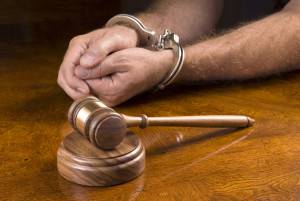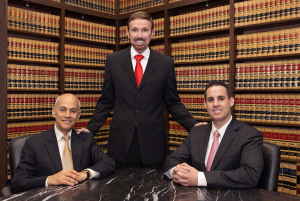Sentence and Punishment for Check Fraud – California Penal Code 476
Check Fraud Overview
Check fraud is a crime that has been prosecuted recently with much more frequency. Due to the recent availability of sophisticated, yet affordable technology (e.g. computers, scanners, publishing software, etc.), check fraud has emerged as one of the most prominent forms of fraud in the country. As defined in California Penal Code Section 476, check fraud occurs when a person makes, possess, passes, uses, or attempts to use a false or altered legal writing, namely a check, for the payment of money or property. The sentence and punishment for check fraud in California is severe. If you are facing a check fraud charges in California, you need to contact an experienced criminal defense attorney immediately.
Check fraud ordinarily occurs in California when a person signs or endorses a check using the name of another person without permission. In this way, even a genuine document can be made false by the use of false writings like signing fictitious or unauthorized names, adjusting the dollar amount on the check, or altering the routing numbers. Therefore, check fraud includes not only the false fabrication of a check but also the making of a false writing on an otherwise genuine check.
To be convicted of this crime, the prosecution must show that a person possessed, used, or attempted to use, a false or altered check for the payment of money or property, and knew that the check was false or altered, and had the intent to defraud. Each element must be individually proven beyond a reasonable doubt in order to achieve a conviction.
Since the underlying offense of check fraud is forgery, as defined in California Penal Code Section 470, the punishment for check fraud will involve the penalties that apply to forgery. If convicted of committing forgery, an accused could be imprisoned in County Jail for up to three years.
Prosecution of Check Fraud Charges

To prove that the defendant is guilty of check fraud, the prosecution must show that:
- The defendant possessed, made, passed, used, or attempted to pass or use, a false or altered check, bill, note, or other legal writing for the payment of money or property;
- The defendant knew that the document was false or altered;
- When the defendant possessed, made, passed, used, or attempted to pass or use the document, the defendant intended to defraud; AND (if possession is charged)
- When the defendant possessed the document, (he/she) intended to pass or use the document as genuine.
Notes:
- The intent to defraud exists if a person intends to deceive another person that causes a loss of money, goods, services, or something else of value. It also exists if they intended to cause damage to a legal, financial, or property right.
- It is possible for a government agency, a corporation, a business, an association, or a group to be deceived for the purposes of this offense.
- A person is held to have “altered” the document if they add to, erase, or change a part of the document that affects a legal, financial, or property right.
- A person is held to have “passed” or “used” a document, or attempted to do so, if they represented to someone that the document is genuine. The representation may be made by their words or conduct and may be either direct or indirect.
Sentence and Punishment for Check Fraud
Check fraud is considered to be forgery. Under California Penal Code Section 470, the crime of forgery is a “wobbler.” This means that the prosecution has the discretion to charge the crime as a misdemeanor or a felony.
Under California’s new sentencing guidelines, or “AB 109 Realignment”, if you are convicted of felony check fraud, you face up to 3 years in a California County Jail. A conviction of felony check fraud burglary will no longer result in a state prison sentence. Moreover, if convicted of felony check fraud, you can be put on probation for up to three years, minus any time you are sentenced to in County Jail. A misdemeanor conviction is punishable by imprisonment in county jail for up to one year.
Check Fraud Defenses

There are a number of different defenses that may be raised to avoid punishment for check fraud allegations. An experienced criminal defense attorney can raise certain defenses depending on the particular facts of the case. If the arguments are successfully presented, the charges against the accused may be dismissed or at least reduced to a less serious offense. Below are just a few defenses to consider.
Lack of Knowledge
An element of the crime that must be proven by the prosecuting attorney is that the accused knew the document was false or altered. An attorney will examine the particular circumstances of the case, and if the facts indicate that the accused was simply unaware of the document’s falsity, their attorney will raise that defense in court. If the attorney can successfully raise this defense, the charges will likely be dismissed or the accused will be acquitted of the charges.
Lack of Intent to Defraud
There is no forgery committed if the accused did not have the intent to defraud. If their attorney can demonstrate that the accused did not have the intent to deceive another out of money, goods, services, or other things of value, the accused will not likely be convicted. An experienced attorney will examine the particular circumstances of their case to provide evidence of this lack of intent. For example, given the nature of their relationship, certain employees or spouses can argue that they honestly believed that they had the authority to make changes to a document or sign for the other person. This belief can negate any inference of an intent to defraud.
Check Fraud FAQs
1. If I tried to return or repay the money I had taken with a fraudulent check, am I still going to be prosecuted?
It is not a legal defense to the charge of check fraud that you returned the property to the victim. You are still legally guilty of the crime of forgery. However, often by making “restitution” to the victim through your lawyer at the earliest possible time can be a “mitigating factor” which can assist you in receiving a less serious sentence.
2. If I made or used a fraudulent check, but it did not actually defraud anyone or cause any kind of loss at all, can I still be charged with check fraud?
Yes. The crime does not require that someone actually be defrauded or suffer a financial, legal, or property loss as a result. The minute you commit the act of altering a check or passing it off, you are liable for check fraud.
3. Can the charge be reduced to a lesser offense?
Yes. If your circumstances allow it, your check fraud allegation can be reduced to attempted check fraud. Under California Penal Code Section 664, any failed attempt to commit a crime that is punishable by imprisonment in state prison will incur a sentence that is one-half the prison term of that attempted crime. If, for example, punishment for check fraud conviction would result in the maximum sentence of three years in state prison, reducing the charge to attempted check fraud will reduced a maximum sentence to eighteen months.
4. What if I was only in possession of the false check and had no involvement in making or altering it? Can I still be prosecuted?
Yes. Even possessing or receiving a forged check can bring about criminal charges if it is shown that you intended to pass or use the check to defraud. This applies even with blank or unfinished checks. It is not necessary to show that you intended to fill up the unfinished check; it is sufficient to show that you knew of the check’s fraudulent purpose.
5. What if the check I attempted to use was obviously false and could not possibly be taken seriously? Can I still face punishment for check fraud charges?
No. Unless the falsified check is of such a nature that someone might possibly be defrauded by it, the mere falsity of the writing is not enough to incur a check fraud conviction. Basically, this crime requires that the check not only be false, but also requires that it be something that can be taken seriously. Attempting to cash a “check” scribbled on a napkin, for example, will not suffice.
Call Wallin & Klarich Today

At Wallin & Klarich, our attorneys have over 40 years of experience in handling check fraud cases. If your or a loved one is facing severe punishment for check fraud charges, it is important that you speak with an experienced attorney at Wallin & Klarich to defend your rights. We will aggressively fight to get you the best possible result in your case.
With offices in Orange County, Los Angeles, Riverside, San Bernardino,San Diego, Ventura, Victorville and West Covina, our team of professionals experienced in burglary cases in California can help you no matter where you work or live.
Call us today at (877) 466-5245. We will be there when you call.

